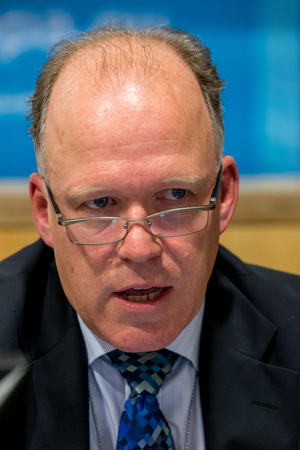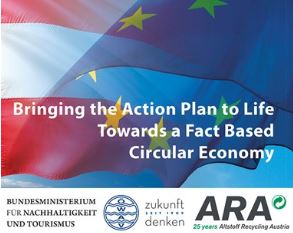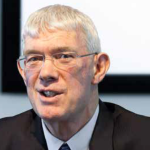With the UK likely to adopt the EU’s Circular Economy measures in its forthcoming Waste and Resources Strategy, Jeff Cooper reports on a European event which also heard that mandatory recycled content for plastics could become an EU requirement.
Bringing the Action Plan to Life – Towards a Fact Based Circular Economy
While the Prime Minister was having a hard time in Salzburg at the EU Summit on 20 September, in the Austrian capital, Vienna there were more than 400 participants tackling an equally vexed issue in a conference entitled “Bringing the Action Plan to Life – Towards a Fact Based Circular Economy”. Although the package of legislation covering the circular economy legislation for the European Community was only finally approved on 4 July 2018, the European Commission’s package of proposals announced on 2 December 2015 included an action plan, on which the European Commission has been working over the last three years.

The Circular Economy conference, with European Commission speakers, was held in Vienna (picture: shutterstock)
This conference was co-sponsored by the Austrian Federal Ministry for Sustainability and Tourism and the first Austrian EPR scheme, ARA (Altstoff Recycling Austria AG). The conference also promoted the aims of the ARA-sponsored organisation Circular Economy Coalition for Europe (www.cec4europe.eu). This is one of the many ways in which the current concern to progress national and global companies towards more circular economy perspectives can be influenced using best practices and sound information.
Therefore, unsurprisingly, there were several presentations from key EU Commission civil servants from the main Directorates which are influential in implementing the Action Plan.
Hugo-Maria Schally from DG Environment stated that 54 of the 78 actions for implementation of the circular economy (CE) Action Plan had already been started.
Mandatory content
Mr Schally went on to highlight the current interest in plastics waste, which is being addressed by the EU’s plastics strategy and he noted there is a strong possibility of a mandatory recycled content for plastics products in order to stimulate the market for recovered plastics waste.

A mandatory recycled content for plastics is possible under the EU’s plastics strategy, said Commission official Hugo Maria-Schally (picture: EESC)
For bio-wastes recovery there will be the bio-economy strategy to be unveiled by the Commission later this year, an action plan for more sustainable products and a product policy framework. There was now also a Circular Economy Stakeholder Platform to bring together all sectors and interests to progress the CE programme and he noted that there was not a truly functioning market in Europe for secondary raw materials. Mr Schally concluded by stating that there was an important issue that the Commission was currently working on – the interface between waste regulation and chemicals legislation which would have implications for waste recovery for the future, which is critical for ensuring waste is recycled.
‘10% circular now’
A further speaker from the Commission, Gwenole Cozigou from DG GROW, started his presentation by stating that both Directorates (ENV and GROW) had worked closely together from the start and that the perception of the European community had changed towards the CE concept over the past five years. He noted that only 10% of raw material used in the EU is circular according to Eurostat. However, there are a number of potential future issues that would affect the future of economic development in the EU. These include:-
· Raw materials supplies, because the EU is heavily dependent on imports and often these come from politically less stable areas
· The need to adopt SMART technologies
· The improvement of internal markets
· The need to harness venture capital funds to promote the CE
Support organisation
The event then heard from Helmut Rechberger, a Professor at the Vienna University of Technology and a key player in the ARA-sponsored Circular Economy for Europe (CEC4E) programme. The CEC4E was established in 2015 to support European and national decision makers in the transition towards a more circular economy.

The conference heard that there is a need to recognise optimal recycling rates
A CEC4E Fact Book for the Circular Economy, which is only available online, so far has 23 contributions by 41 authors with 4-6 pages of content on each subject that is covered, such as: the basics of the CE, definitions, economic perspectives, principal objectives and strategies and instruments to move towards a more CE. There are also several contributions on selected materials.
To date there are 70 conclusions and recommendations in the Fact Book, which Helmut Rechberger had condensed to 7 key perspectives for the conference. The first was that recycling and the CE are only a means to achieve sustainable resource management rather than an aim. Therefore waste prevention is not a goal, indeed physically impossible. Secondly there is a need to recognise that there are optimal recycling rates and these are affected by ecological and economic factors and therefore will be dynamic and subject to changes over time.
In addition, suggested Mr Rechberger, qualitative targets are needed to maintain cleaner recycling cycles but also cannot avoid the need for new primary raw materials. In consequence, as a result of growing stock levels, for example in urban infrastructure we need to balance our needs with use of less material. There is a need for more and better quality data to enable much clearer systems understanding.
Product design
There has to be both better product design and an extension of EPR. Therefore we require a new policy perspective that is consistent, coherent and credible. Overall the realisation of CE requires a better understanding of industrial metabolism through enhanced data, supporting tools, interaction with research, administration and industry and establishing networks for education and training for the CE.
AUTHOR:
Jeff Cooper is a recycling and waste management expert, and a former senior Environment Agency official and past president of the International Solid Waste Association.
Melanie Haupt from the research organisation ETH based in Zurich, Switzerland tackled the problematic issue of plastics recycling and the implications of the change in the recycling target of the EU under the new CE package. This was instructive because Switzerland has one of the best recycling rates for PET containers in Europe as at present the country has an exemplary record of 82% collection rate. However, if that collected material is then subject to sorting and intermediate processing the recycling rate declines to around 72% but crucially under the new EU measurement requirement it would decline to only 62% of PET available for being reprocessed into new products, both closed loop and other products. Therefore a 90% recycling target for PET single use beverage containers is technically impossible under the EU’s new requirements.
Omission
The main omission in the presentations was an absence of a clear theoretical framework for the circular economy, albeit several speakers noted that resource efficiency was the first priority in the move towards establishing a more circular economy globally.
The post EU mandatory content requirement likely for plastics appeared first on letsrecycle.com.
Source: letsrecycle.com Plastic



